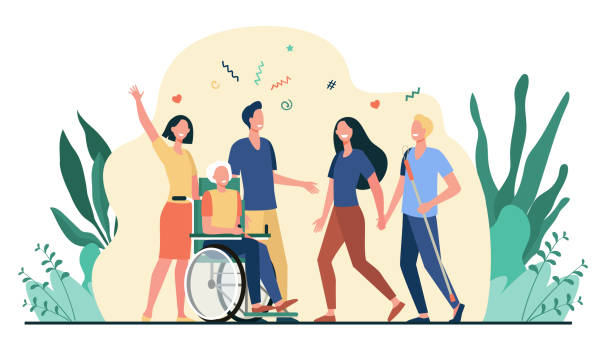Advocacy demands that, as an individual or group, you own the zeal to influence, fund, champion, and/or advocate for a particular course of action for a given individual or group.
For a long time, the discussion of inclusion for Persons with Disability In the ICT sector was unheard of. The advocacy for inclusion remained toned-down and it was considered a non-issue in the digital space. In the few instances that inclusivity was mentioned it was either an afterthought, an impulsive response, or in some cases, just part of an AOB on “what about people with disability?”. Not to forget the obligation to check the boxes.
The drive to see change and ensure inclusivity was not fully charged. It is until recently, that individuals, organisations and communities that believe in equity and equality took on the mantle to promote digital inclusivity. They have steered clear of those who are just “in the name of disability”, and cut the niche to impact change and bring on board these marginalised groups, in a way to better their levels of societal participation.
Such organisations have taken it upon themselves to lead and be a benchmark of ICT inclusivity. They have created and offered a platform for the marginalised to air their views, give life and lived experiences, and become part of the solution.
A good example is KICTANet’s Digital Accessibility for Persons with Disabilities program, a platform that has created a live bridge that connects and brings onboard the voice of people with disabilities in the ICT sector.
Through its unique approaches to ICT policy advocacy, capacity building, research, and stakeholder engagement, there has been a tremendous increase in interest among the ICT stakeholders and the involvement of persons with disabilities (PWDs).
What is changing?
As a result of this initiative, Persons with disabilities are becoming more aware of their rights, are engaging in policy-making processes and slowly and surely they are forming a stronger voice and are making life-changing decisions.
PWDs’ voices in ICT have been heard amongst the community networks, in the National Disability Dialogue, EdTech summits, Cybersecurity, gender issues, TwitterSpaces, and at the international level IGF 2023 in Addis Ababa, Ethiopia.
As a result, persons with disabilities have told their stories to fight stigma and prejudice. They have called out non-inclusive ICT frameworks and models that have masked their access to IT and ICT services.
Though the fight continues, they have stood up for their rights to access assistive technologies and devices.
From these forums, we have also gotten to hear from organisations working with and/or on behalf of persons with disabilities on their commitments to ensure full incorporation of inclusivity in governance and socio-economic developments. The institutions have come out against stereotyping, misinformation, and misrepresentation of persons with disabilities.
These collective efforts have demystified disability accommodation and made it clear that the call for inclusion is on and live, and it is not a request for ‘special needs’ or sympathy but rather a human rights-based approach towards societal empowerment.
Nicodemus Nyakundi is an ICT Access and Equality Fellow for PwDs at KICTANet. He has a background in IT and is passionate about digital inclusivity.
![]()




